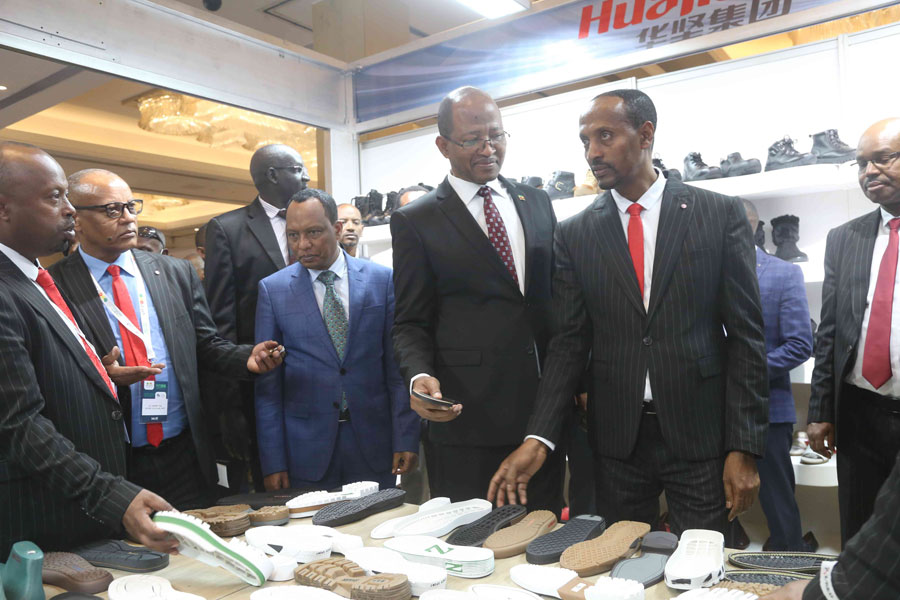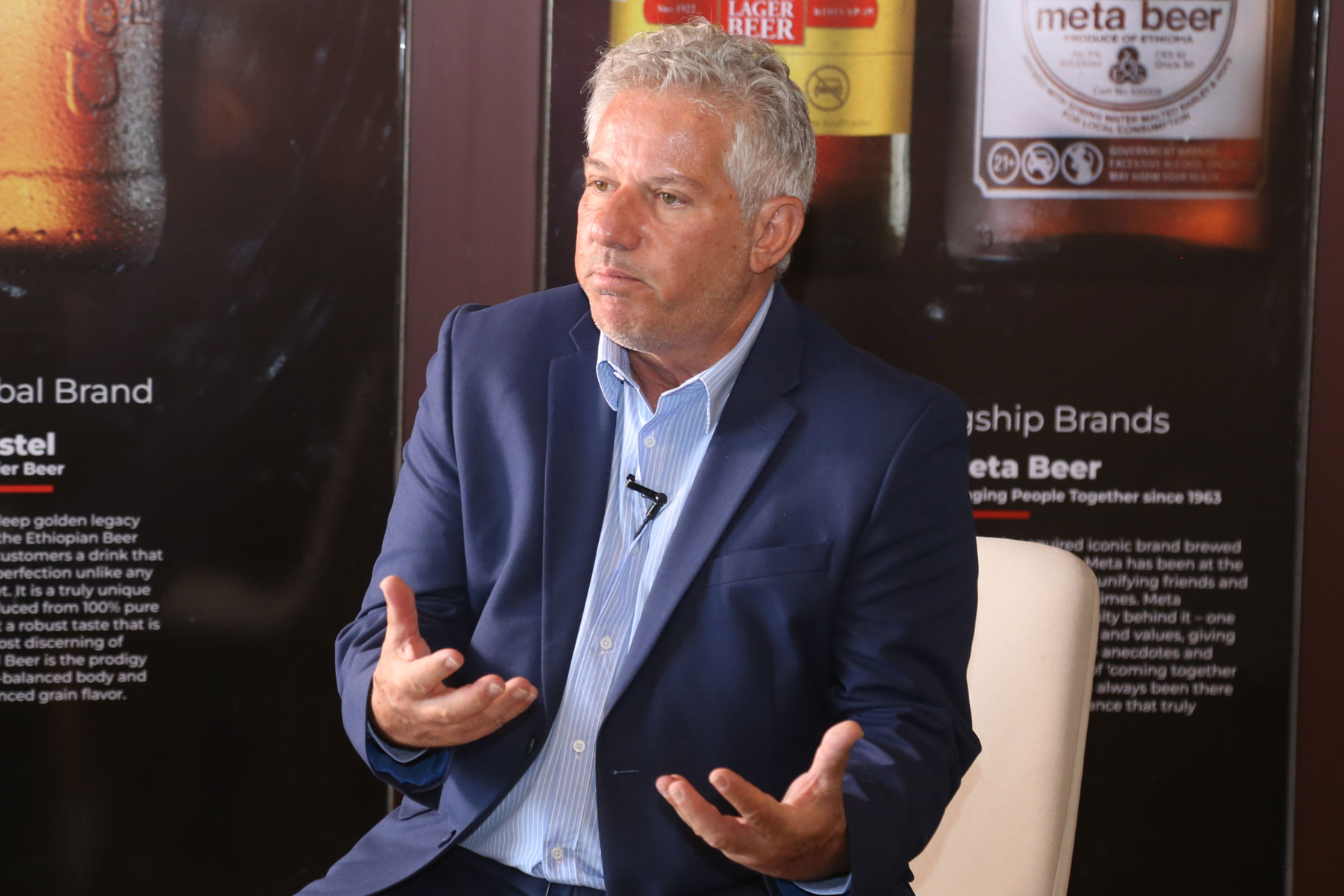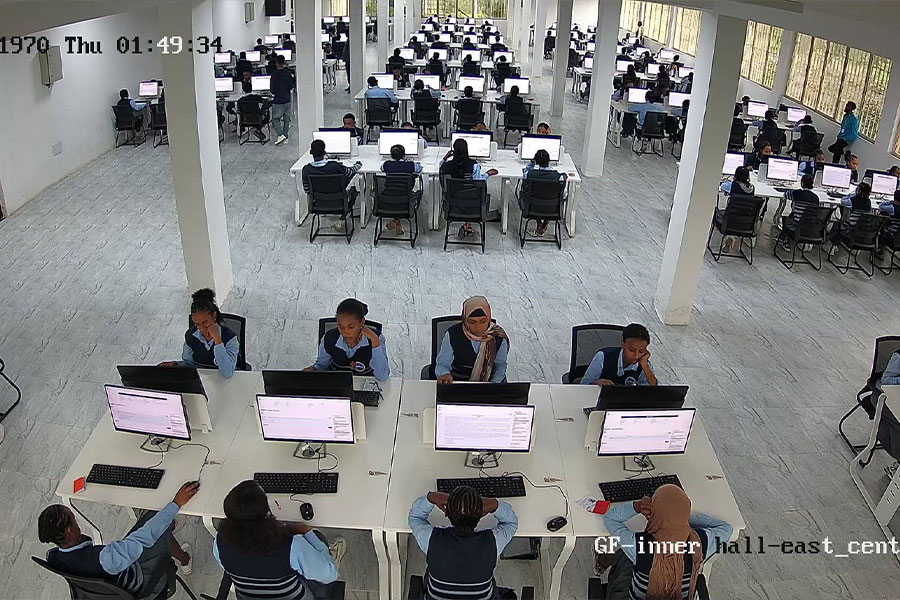
Viewpoints | Jul 10,2020
Mar 9 , 2024
By Eden Sahle
Living in a secure, affluent neighbourhood, I am surrounded by the outward signs of comfort where most of our neighbours are proprietors of thriving businesses. Yet, just beyond the confines of our gated community lies a glaringly different reality. Confined to meagre one-room dwellings, families struggle to meet their basic needs, their daily activities unfolding within plain sight from my bedroom window.
Early each morning, the faint glow of wood fires illuminates their dwellings as women begin baking injera, the staple flatbread, in traditional clay ovens. Smoke blows into the air, painting a picture of arduous labour, often undertaken while pregnant. Their husbands and children join them later, sharing a meagre breakfast of injera seasoned with salt or paprika.
While some fortunate children head off to school, others remain at home, their laughter echoing amidst the plastic bottles they collect for recycling. The day progresses with a relentless cycle of work – fetching water from neighbours' wells, grinding grain, washing clothes by hand – tasks that expose them to harsh conditions and leave them visibly exhausted.
Despite their hardships, these individuals exude an unwavering spirit. Even as they face the threat of eviction and navigate a life devoid of basic amenities like running water and electricity, their faces reveal a remarkable resilience. Their smiles speak volumes about their strength in the face of adversity.
I particularly focused on the pregnant women who were doing activities that doctors advised me to stay away from, while I was carrying my child. They haul substantial bundles of firewood, splitting them into smaller pieces with an axe. In the haze of wood smoke, they prepare injera and meals, carry kilograms of ground grain on their backs, and laboriously handwash clothes, their thin frames indicative of their meagre sustenance.
Despite living in the capital city, basic services such as running water, electricity, or sanitation are lacking. They usually rely on our gated community's "generosity" for water and sustenance.
Through personal interactions, I have gained a deeper understanding of their struggles – the traumas they have endured, and the constant fight for survival. Yet, they have not succumbed to despair. Instead, they instil in their children a strong work ethic, teaching them the value of self-reliance. The children who come to our doors, offering to work for food and water, are a testament to this ingrained discipline.
According to estimations done by UNDP in 2021, 68.7pc of Ethiopia's population is multidimensionally poor, with an additional 18.4pc vulnerable to multidimensional poverty. While poverty is pervasive in Ethiopia, it is not solely a narrative of despair. For many, like the families I have come to know, it becomes a crucible that forges resilience. It fosters a profound appreciation for even the most necessities, strengthens familial bonds, and ignites hope for a brighter future.
Their ability to thrive in the face of adversity is not simply a product of physical strength, but rather a testament to the power of the mind. By cultivating a positive outlook and crafting a narrative of hope, they transcend their circumstances, demonstrating the profound impact our thoughts have on our lives. These individuals are not just surviving; they are setting an example of resilience and unwavering optimism in the face of unimaginable challenges.
PUBLISHED ON
Mar 09,2024 [ VOL
24 , NO
1245]

Viewpoints | Jul 10,2020

Sunday with Eden | Aug 27,2022

Agenda | Dec 16,2023

Exclusive Interviews | May 11,2024

Life Matters | Jan 31,2021

Viewpoints | Jun 15,2019

Agenda | Sep 21,2025

Life Matters | Jun 22,2024

Commentaries | May 02,2024

Commentaries | Sep 19,2020

Photo Gallery | 180656 Views | May 06,2019

Photo Gallery | 170850 Views | Apr 26,2019

Photo Gallery | 161935 Views | Oct 06,2021

My Opinion | 137303 Views | Aug 14,2021

Dec 22 , 2024 . By TIZITA SHEWAFERAW
Charged with transforming colossal state-owned enterprises into modern and competitiv...

Aug 18 , 2024 . By AKSAH ITALO
Although predictable Yonas Zerihun's job in the ride-hailing service is not immune to...

Jul 28 , 2024 . By TIZITA SHEWAFERAW
Unhabitual, perhaps too many, Samuel Gebreyohannes, 38, used to occasionally enjoy a couple of beers at breakfast. However, he recently swit...

Jul 13 , 2024 . By AKSAH ITALO
Investors who rely on tractors, trucks, and field vehicles for commuting, transporting commodities, and f...

Nov 1 , 2025
The National Bank of Ethiopia (NBE) issued a statement two weeks ago that appeared to...

Oct 25 , 2025
The regulatory machinery is on overdrive. In only two years, no fewer than 35 new pro...

Oct 18 , 2025
The political establishment, notably the ruling party and its top brass, has become p...

Oct 11 , 2025
Ladislas Farago, a roving Associated Press (AP) correspondent, arrived in Ethiopia in...

Nov 2 , 2025
The National Bank of Ethiopia (NBE) has scrapped the credit-growth ceiling that had s...

Nov 2 , 2025 . By SURAFEL MULUGETA
The burgeoning data mining industry is struggling with mounting concerns following th...

Nov 2 , 2025 . By YITBAREK GETACHEW
Berhan Bank has chosen a different route in its pursuit of a new headquarters, opting for a transitional building instea...

Nov 2 , 2025 . By BEZAWIT HULUAGER
Nib International Bank S.C. has found itself at the epicentre of a severe governance...